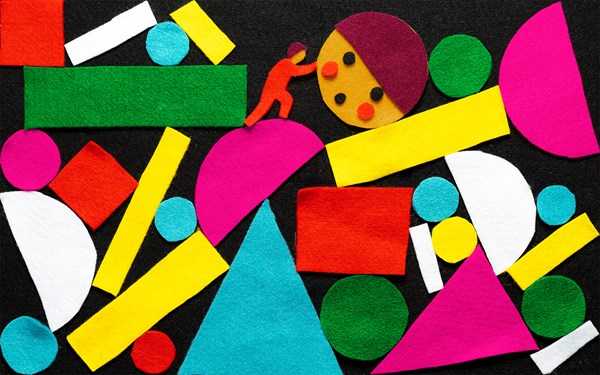Signs of depression in children can include:
- ongoing low mood or lack of motivation
- not enjoying things they used to like doing
- becoming withdrawn and spending less time with friends and family
- experiencing low self-esteem or feeling like they are ‘worthless’
- feeling tearful or upset regularly
- changes in eating or sleeping habits.
Signs of anxiety in children can include:
- becoming socially withdrawn and avoiding spending time with friends or family
- feeling nervous or 'on edge' a lot of the time
- having panic attacks
- feeling tearful, upset or angry
- having trouble sleeping
- changes in eating habits.
Helping a child with anxiety or depression

Sometimes, parents feel like their child’s mental health problem is their fault. Or they want to know exactly why their child is struggling. This is understandable, but the most important thing is to reassure your child and not judge them for how they’re feeling.
You can help a child who’s struggling by:
- letting them know you’re there for them and you're on their side
- talking to them over text or on the phone if they don’t feel able to talk in person
- being patient and staying calm and approachable, even if their behaviour upsets you
- recognising that their feelings are valid and letting them know it’s OK for them to be honest about what they're feeling
- thinking of healthy ways to cope. You could try things like yoga, breathing exercises or mindfulness together
- encouraging them to talk to their GP, someone at their school or Childline. Especially if they’re finding it hard to talk at home.
- taking care of yourself and getting support if you need to. Try not to blame yourself for what’s happening, and stay hopeful about your child’s recovery.
Getting mental health support for your child
Supporting a child with a mental health problem like depression or anxiety can be hard, and it’s important for a young person to speak to their GP about professional help if they’re struggling. This should be the first step you take if you’re worried a child may have a mental health problem. Sometimes, a GP will prescribe medication to help a child or young person with depression or anxiety symptoms.
Your child may want to speak to their GP on their own, or they may want you to be there with them. You should support their decision. Sometimes, young people find it easier to talk about their feelings with someone they don’t know.
Children can talk to a trained counsellor over the phone, online via 1-2-1 chat or email about anything worrying them, 24 hours a day. Many young people find it easier to be honest about their mental health with someone they don’t know.
Childline also has lots of information and advice for young people on how to cope with mental health problems.
Their website also offers advice and coping techniques for:
It can also help to speak to someone at your child’s school, like their teacher. Your school should be able to provide someone who your child can speak to regularly about their mental health, such as a school counsellor. Ask your child if there's a teacher at their school they feel comfortable talking to.
If your child has been feeling unhappy or anxious for a long time or is showing signs of self-harm or suicidal thoughts, it’s important to consider professional help so that they can get the support they need.
Child and adolescent mental health services (CAMHS) is a free NHS service for children and young people under 18. CAMHS can help young people who are struggling with serious mental health problems such as depression, anxiety, self-harm, panic attacks or eating problems.
Referral is usually done through your child’s GP. Unfortunately, an initial assessment can take several weeks. Social services can also refer young people to CAMHS if they support your child.
Sometimes, parents come to the first appointment with their child or may be offered family therapy, but often, your child will see a CAMHS worker on their own. This is important as it can help children to be more honest about how they’re feeling.
Young Minds has advice for parents about supporting children with a range of mental health problems.
The Mix offers advice on a range of topics for young people under 25. They have a 24-hour crisis messenger for young people who need help right away.
If you're worried a child is feeling suicidal

While not every child with depression or anxiety will feel suicidal, sometimes mental health problems can feel overwhelming for children and young people. If a young person talks about wanting to hurt or harm themselves or expresses suicidal feelings, they should always be taken seriously.
Signs that a child or young person may be having suicidal feelings or thinking about suicide include:
- becoming more depressed or withdrawn, spending a lot of time by themselves
- an increase in dangerous behaviours like taking drugs or drinking alcohol
- becoming obsessed with ideas of suicide, death or dying, which could include internet searches
- saying things like “I’d be better off dead”, “No one would miss me”, “I just wish I wasn’t here anymore”.
If you're worried, it's important to get help right away. Our trained Helpline counsellors can provide help or advice over the phone at 0808 800 5000. Children and young people under 19 can also get support from Childline online or over the phone, 24 hours a day.
However a child or young person feels, remind them that they're not alone and there are ways to cope and feel better. Childline also has online advice and tips for young people on coping with suicidal feelings that they can use right now.
More advice and support for parents
You can help us to support more families.
Illustration credits
Top banner and page body illustrations by Sinem Erkas.
Parenting advice row: see individual pages for details.





